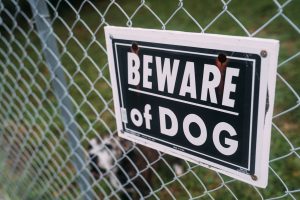After experiencing a dog bite, knowing what to do next is crucial. This situation can be overwhelming and confusing, but understanding your legal rights helps you navigate the aftermath effectively.
Understanding local laws surrounding dog bites enhances your perspective on potential outcomes and liabilities. Different states have varying rules about owner responsibility that affect compensation possibilities, so you want to be sure you understand the basics.
Continue reading to explore what to do within the confines of the law after a dog bite accident to ensure the incident has as little impact on your life as possible.
Seeking Medical Attention
Getting medical attention is the first and most critical step after a dog bite incident. Immediate care helps address any injuries and prevent complications like infections or severe wounds.
Regardless of how minor the bite may seem, seeking professional evaluation ensures that all potential risks are managed effectively.
Depending on the dog's vaccination status, vaccinations such as rabies may be necessary in some cases. Prioritizing your health lays a strong foundation for any legal steps you might take afterward and safeguards your well-being in this stressful situation.
Documenting the Incident
After seeking medical attention, documenting the incident becomes essential. Collect detailed information about the attack, including where it happened and any witnesses present. Taking photos of your injuries and the scene also serves as vital evidence.
This documentation is crucial in supporting your case if you pursue legal action later. Accurate records can help establish liability and demonstrate how the bite has impacted your life physically and emotionally. Capturing these details promptly strengthens your position while ensuring you do not overlook critical facts as time passes.
Reporting the Incident
After documenting the incident, reporting it to local authorities is a necessary step. Contact animal control or law enforcement to provide details about the attack. This action helps ensure that officials can assess whether the dog poses a risk to others and may lead to an investigation into its owner’s responsibilities.
Filing a report also creates an official record of the event, which can be vital if you seek compensation later. Promptly addressing this aspect reinforces your commitment to safety while helping protect your community from future incidents involving aggressive animals.
Gathering Evidence
gathering evidence is also an important step to take in the initial stages following the incident. Collect any relevant information that supports your case, including medical records, photographs of injuries, and witness statements. Should you pursue legal action against the dog’s owner, these materials strengthen your position.
Capturing details about the dog's vaccination history can also help ensure safety and accountability. Thorough evidence helps establish liability and showcases the impact of the attack on your life. This proactive approach lays a strong foundation for potential claims while enhancing your understanding of your rights as a victim.
Hiring a Lawyer
Engaging a lawyer is crucial when dealing with the complexities of dog bite claims. Many states follow strict liability laws, meaning owners are responsible for injuries caused by their dogs regardless of previous behavior. However, some areas implement “first bite” rules, which may require proof that the owner knew their dog was dangerous.
Consulting with a qualified dog bite attorney helps clarify your legal rights and options. They can navigate nuances in local legislation while gathering the necessary evidence to strengthen your case. This professional support empowers you to focus on recovery rather than grappling with intricate legal details alone.
Final Thoughts
Addressing a dog bite incident involves multiple steps, from seeking medical attention to hiring legal support. Understanding your rights and responsibilities is vital in protecting yourself and others. Taking these actions ensures that you can handle the aftermath while prioritizing your health and well-being moving forward.





















